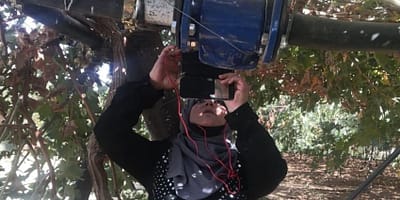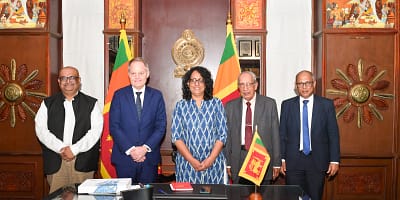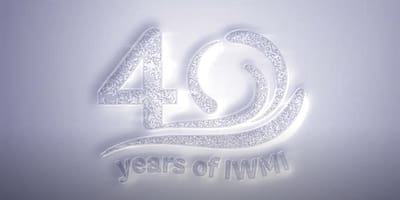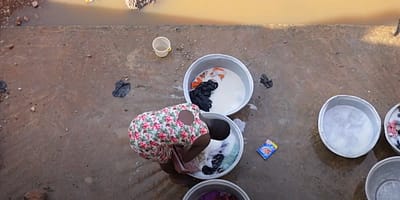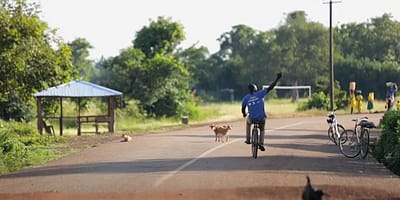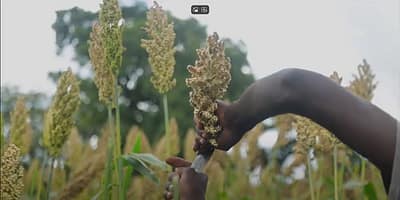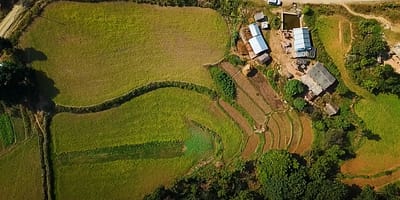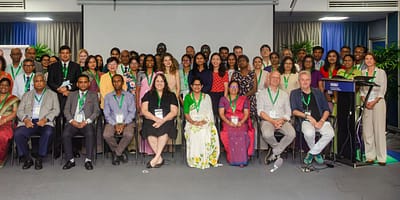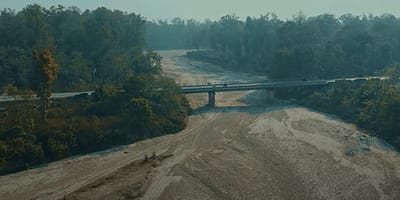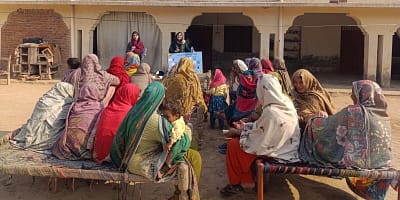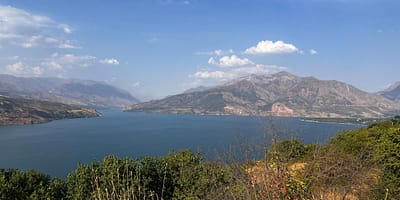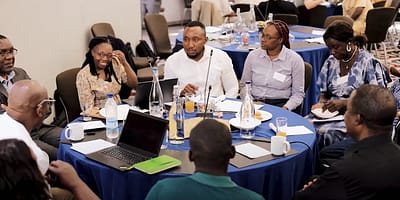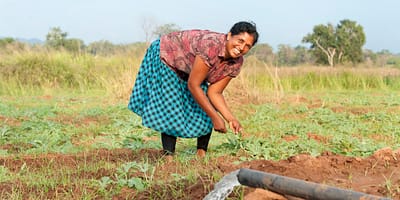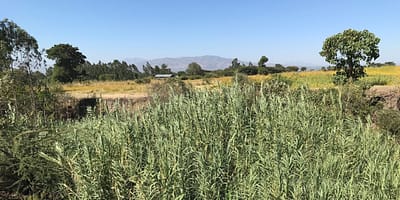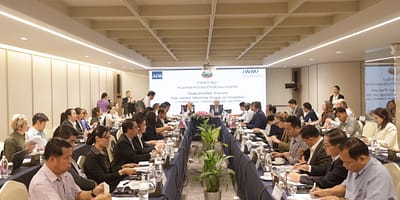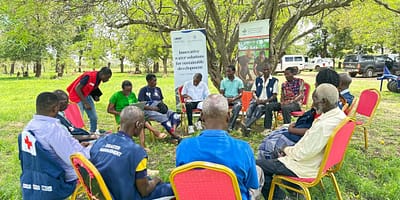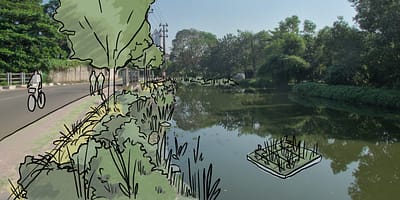All Categories News (489) Explainers (3) Features (158) In the media (720) Press releases (81) Publications (46) Specials (0) Annual reports (6) Blogs (273) From the DG (6) Multimedia (0) Infographics (3) Photos (6) Podcasts (10) Videos (42)
All Locations Africa (460) Algeria (1) Angola (1) Botswana (6) Burkina Faso (10) Chad (1) Côte d’Ivoire (2) Egypt (33) Ethiopia (80) Gambia (1) Ghana (86) Kenya (24) Lesotho (1) Libya (1) Malawi (6) Mali (4) Morocco (18) Mozambique (7) Namibia (3) Niger (1) Nigeria (20) Senegal (3) South Africa (36) Sudan (1) Tunisia (10) Uganda (4) United Republic of Tanzania (3) Zambia (36) Zimbabwe (18) Americas (17) Colombia (5) Ecuador (1) Mexico (2) Paraguay (1) Peru (2) United States of America (3) Asia (684) Afghanistan (10) Azerbaijan (2) Bangladesh (43) Bhutan (2) Cambodia (5) China (18) India (172) Indonesia (1) Iran (2) Iraq (1) Japan (2) Jordan (26) Kazakhstan (1) Kyrgyzstan (3) Lao PDR (15) Lebanon (10) Myanmar (15) Nepal (100) Pakistan (115) Saudi Arabia (8) Sri Lanka (162) Tajikistan (14) Thailand (1) Turkmenistan (1) United Arab Emirates (16) Uzbekistan (17) Viet Nam (3) Yemen (3) Europe (5) Italy (1) Netherlands (1) Spain (2) Sweden (1) Ukraine (1) Global (116) Oceania (4) Australia (3) Fiji (1)
All Research Non-research (5) Water data science (156) Water data science for action (59) Water futures data and analytics (36) Water, climate change and resilience (419) Climate mitigation and adaptation pathways (258) Climate policies, finance and processes (32) Water, food and ecosystems (378) Agricultural water management transformations (37) Integrated basin and acquifer management (25) Next generation irrigation systems (135) Sustainable water infrastructure and ecosystems (86) Water, food, energy nexus (85) Water, growth and inclusion (345) Economics and impact assessment (28) Gender equality and social inclusion (173) Integrated circular economy transformations (46) Water governance and political economy (36)
All Funders & Partners Africa Group of Negotiators Expert Support (1) African Development Bank (AfDB) (1) Alliance for a Green Revolution in Africa (AGRA) (1) Alliance for Global Water Adaptation (AGWA) (4) Aquaporo (2) Arab Water Council (1) Arup (1) Asian Development Bank (ADB) (3) Association of International Research and Development Centers for Agriculture (AIRCA) (8) Centre for Agriculture and Bioscience International (CABI) (1) International Centre for Integrated Mountain Development (ICIMOD) (7) Australia's Department of Foreign Affairs and Trade (DFAT) (6) Water for Women Fund (3) Australian Centre for International Agricultural Research (ACIAR) (10) Australian Water Partnership (AWP) (4) BAIF Development Research Foundation (1) Bangladesh's Ministry of Agriculture (1) Bangladesh Agricultural Research Council (BARC) (1) Bill & Melinda Gates Foundation (9) CARE (1) Center for Environment and Development for the Arab Region and Europe (CEDARE) (1) Centre for Poverty Analysis (CEPA) (1) Cewas (1) CGIAR (323) Alliance of Bioversity International and CIAT (8) International Center for Agricultural Research in the Dry Areas (ICARDA) (3) International Crops Research Institute for the Semi-Arid Tropics (ICRISAT) (1) International Food Policy Research Institute (IFPRI) (14) International Livestock Research Institute (ILRI) (1) International Maize and Wheat Improvement Center (CIMMYT) (8) International Potato Center (CIP) (1) International Rice Research Institute (IRRI) (13) WorldFish (7) Chrysalis (1) Climate Centre (2) Columbia University (1) Cornell University (1) Council on Energy, Environment and Water (CEEW) (1) Deltares (1) Deutsche Gesellschaft fuer Internationale Zusammenarbeit (GIZ) GmbH (6) Digital Earth Africa (5) European Union (EU) (16) European Commission (10) Everest Club (1) Expertise France (1) Farm Africa (1) Field Ornithology Group of Sri Lanka (FoGSL) (1) Germany's Federal Ministry for Economic Cooperation and Development (BMZ) (8) Ghana's Ministry of Food and Agriculture (MoFA) (2) Ghana Irrigation Development Authority (GIDA) (1) Global Affairs Canada (1) Global Environment Facility (GEF) (3) Global Resilience Partnership (GRP) (1) Global Water Partnership (GWP) (19) Google.org (8) Hawassa University (3) Helmsley Charitable Trust (12) iDE (1) IHE Delft Institute for Water Education (6) India's Ministry of Agriculture and Farmers Welfare (8) Indian Council of Agricultural Research (ICAR) (7) Borlaug Institute for South Asia (BISA) (1) Central Research Institute for Dryland Agriculture (CRIDA) (1) India's Ministry of Jal Shakti (1) Indian Space Research Organisation (ISRO) (1) Institute of Development Studies (IDS) (1) Inter-American Development Bank (IDB) (1) International Federation of Red Cross and Red Crescent Societies (IFRC) (1) International Fund for Agricultural Development (IFAD) (8) International Union for Conservation of Nature (IUCN) (4) International Water Association (IWA) (3) International Water Resources Association (IWRA) (2) Interstate Commission for Water Coordination of Central Asia (ICWC) (1) Scientific-Information Center (SIC) (1) Japan's Ministry of Agriculture, Forestry and Fisheries (MAFF) (4) Jordan's Ministry of Agriculture (1) Kwame Nkrumah University of Science and Technology (1) League of Arab States (1) Arab Organization for Agricultural Development (AOAD) (1) Limpopo Watercourse Commission (LIMCOM) (2) McGill University (1) National Agriculture Research Center (1) NDC Partnership (1) Nepal Water Conservation Foundation (NWCF) (1) Nepal's Ministry of Energy, Water Resources and Irrigation (2) Nepal's Department of Hydrology and Meteorology (DHM) (1) Netherlands Food Partnership (NFP) (1) Netherlands Water Partnership (NWP) (1) Norwegian Agency for Development Cooperation (NORAD) (4) Pakistan Council of Research in Water Resources (PCRWR) (2) Pakistan Ministry of Climate Change and Environmental Coordination (MOCC) (1) Resurgence (2) SNV Netherlands Development Organisation (2) South Asian Association for Regional Cooperation (SAARC) (1) South China Agricultural University (SCAU) (1) Sri Lanka's Ministry of Agriculture (5) Sri Lanka's Department of Agrarian Development (3) Sri Lanka's Ministry of Defence (4) Sri Lanka's Disaster Management Division (4) Sri Lanka's Disaster Management Centre (3) Sri Lanka's Ministry of Environment (2) Sri Lanka's Ministry of Irrigation (2) Sri Lanka's Ministry of Mahaweli Development and Environment (1) Sri Lanka's Ministry of Technology (4) Arthur C. Clarke Institute for Modern Technologies (ACCIMT) (1) National Research Council of Sri Lanka (NRC) (2) Stockholm Environment Institute (SEI) (3) Stockholm International Water Institute (SIWI) (3) Swedish International Development Agency (SIDA) (2) Swedish University of Agricultural Sciences (SLU) (1) Swiss Agency for Development and Cooperation (SDC) (7) Tata Trusts (32) Total LandCare (1) Tribhuvan University (1) UK Research and Innovation (UKRI) (1) UK's Foreign, Commonwealth & Development Office (FCDO) (22) United Nations (UN) (80) Food and Agriculture Organization of the United Nations (FAO) (25) Intergovernmental Panel on Climate Change (IPCC) (1) Intergovernmental Science-Policy Platform on Biodiversity and Ecosystem Services (IPBES) (1) International Organization for Migration (IOM) (2) UN Environment Programme (UNEP) (6) UN-Water (5) United Nations Children’s Fund (UNICEF) (8) United Nations Convention to Combat Desertification (UNCCD) (1) International Drought Resilience Alliance (IDRA) (2) United Nations Development Programme (UNDP) (3) United Nations Economic and Social Commission for Western Asia (ESCWA) (1) United Nations Framework Convention on Climate Change (UNFCCC) (6) United Nations Office for Outer Space Affairs (UNOOSA) (1) United Nations Office for the Coordination of Humanitarian Affairs (UN OCHA) (2) United Nations Population Fund (UNFPA) (1) World Food Programme (WFP) (10) United States Agency for International Development (USAID) (68) Feed the Future (2) United States Department of State (1) University of Aberdeen (3) University of London (1) School of Oriental and African Studies (SOAS) (1) University of Manchester (1) University of Nebraska (11) Daugherty Water for Food Global Institute (12) Water Research Commission (WRC) of South Africa (1) Wellcome Trust (2) World Bank (104) International Development Association (IDA) (1) World Economic Forum (2) World Farmers' Organization (WFO) (1) World Vision (5)
Sort by date Newest first Oldest first
February 18, 2025
IWMI’s Inga Jacobs-Mata comments on the launch of Scaling for Impact Hub in Nairobi aimed at transforming agriculture in East and Southern Africa.
February 18, 2025
Jordanian women are overcoming societal and professional barriers to lead in water science, engineering, and agriculture. Their work in research and innovation is driving sustainable solutions and highlighting the need
February 14, 2025
Smith reinforced IWMI’s shared mission of building long-term resilience in Sri Lanka’s water resources.
February 5, 2025
As IWMI celebrates four decades of research and innovation, former director generals and board chairs share their reflections, learnings, and favorite memories.
February 4, 2025
This tool will contribute to informed decision making which addresses the specific needs of diverse social groups.
February 2, 2025
Behavioural changes through wetland conservation and education are urgently required to alter the human-wetlands relationship.
January 31, 2025
IWMI research is generating evidence to support decision making on improving access to water for all social groups.
January 31, 2025
IWMI-led social transformation analysis is helping to formulate and implement interventions to create resilient communities.
January 31, 2025
IWMI research looks at the effects of the changing climate on smallholder farming and identifies coping strategies to support resilience.
January 30, 2025
Sustainable agriculture is diversifying risks, optimizing labor, and increasing productivity, while preserving the environment.
January 30, 2025
Solar-powered irrigation is contributing to improved food security and incomes for farmers in the Oromia and Central Ethiopia regions.
January 29, 2025
Experts explored the challenges to and opportunities for healthier diets by strengthening fruit and vegetable value chains.
January 28, 2025
IWMI's work in two districts of Nepal assessed climate change vulnerability and risk to water and sanitation systems.
January 24, 2025
The continent's ability to adapt to climate change depends, in part, on accurate river discharge estimation.
January 21, 2025
Women and girls are learning to conserve water and boost productivity while reducing water stress in Okara, Punjab.
January 21, 2025
The NEXUS Gains Talks series concluded by examining critical connections between global heating and water.
January 20, 2025
The Chirchik River Pywr model tracks current water management decisions, their impacts and benefits to evaluate future interventions.
January 17, 2025
Collective action is at the forefront of IWMI's work to strengthen climate-resilient agricultural practices in rainfed systems.
January 16, 2025
Over three years, NEXUS Gains has worked across South Asia, applying diverse approaches to help address groundwater depletion.
January 15, 2025
The story of one family's successful gully restoration in Halaba, Ethiopia.
January 15, 2025
Roundup of research, journal and other academic articles from November and December 2024.
January 9, 2025
Evidence-based research on solar-powered groundwater irrigation has the potential to provide water security for agrarian communities in Lao People’s Democratic Republic (PDR).
January 6, 2025
Embedding anticipatory action in national systems, among other actions, can better protect vulnerable populations from predictable shocks.
January 3, 2025
In 2024, we published over 150 stories on topics including digital twins, drought, and urban wetlands. Here are our favorites.



